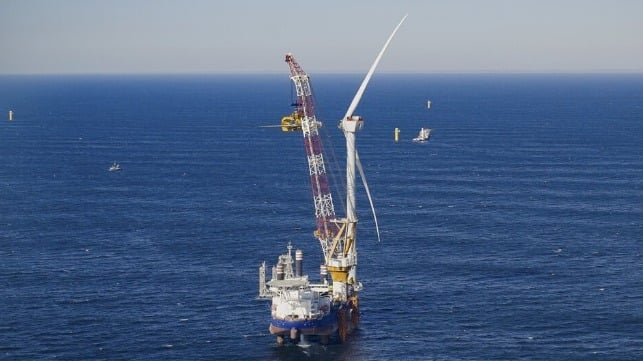Equinor Threatens to Terminate New York Offshore Wind Project Amid Trump Administration’s Stop Work Order
Equinor, a major player in the renewable energy sector, is facing a critical juncture with its Empire Wind offshore energy project in New York. The company is locked in a standoff with the Trump Administration and the Department of the Interior over a stop work order that has halted progress on the project. The situation has escalated to the point where Equinor is now considering terminating the project altogether.
Four weeks ago, Interior Secretary Doug Burgum issued a stop work order, citing concerns that the permitting process had been rushed and required further reviews. Despite repeated attempts by Equinor to seek clarification and resolve the issue, the company has been met with silence from the administration. Molly Morris, president of Equinor Renewables Americas, has described the situation as “urgent and unsustainable,” highlighting the company’s inability to secure a meeting with Burgum or receive the purported report that raised questions about the permitting.
According to a recent Bloomberg report, Equinor CEO Anders Opedal and senior officials met with US National Economic Council Director Kevin Hassett but have received no indication of a change in stance from the Trump administration, which has expressed strong opposition to the offshore wind energy industry. If no progress is made within days, Equinor has stated that it will be forced to terminate the project, despite having invested approximately $2.7 billion and reaching 30% completion.
The stop work order is reportedly costing Equinor $50 million a week, with 11 vessels on standby and over 100 workers unable to proceed with offshore construction. The company had planned for commercial operations to begin in 2027 with a total project cost of $5 billion. However, the uncertainty surrounding the project has led to increased risks and financial exposure for Equinor.
Equinor’s predicament is not isolated, as other major companies like Shell, TotalEnergies, and RWE have either paused or abandoned their plans in the US market due to regulatory uncertainties. The company has emphasized that the situation goes beyond its project, highlighting the importance of honoring contracts and financial investments in the renewable energy sector.
In response to the stop work order, Equinor is considering legal options to challenge the decision. The company has labeled the order as “unlawful” and is exploring ways to protect its investments and contractual obligations. New York state and several other states have also voiced support for Equinor, with 17 states and the District of Columbia filing a lawsuit challenging the executive order that halted offshore energy projects.
As Equinor faces mounting pressure and financial losses, the future of the Empire Wind project hangs in the balance. The outcome of this dispute will not only impact Equinor’s operations but could also set a precedent for how the US government handles renewable energy projects in the future.

